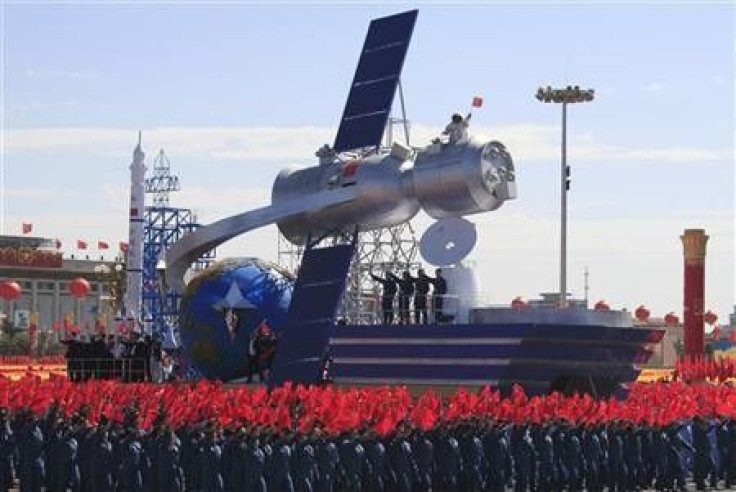Xi Jinping Calls For Boosting China's Military Power In Space

BEIJING (Reuters) -- Chinese President Xi Jinping urged the air force to adopt an integrated air and space defense capability, in what state media Tuesday called a response to the increasing militarization of space by the United States and others.
While Beijing insists its space program is for peaceful purposes, a Pentagon report last year highlighted China's increasing space capabilities and said Beijing was pursuing a variety of activities aimed at preventing its adversaries from using space-based assets during a crisis.
Fears of a space arms race with the United States and other powers mounted after China blew up one of its own weather satellites with a ground-based missile in January 2007.
A detailed analysis of satellite imagery published in March provided additional evidence that a Chinese rocket launch in May 2013, billed as a research mission, was actually a test of a new anti-satellite weapon.
Visiting air force headquarters in Beijing, Xi, who is also head of the military, told officers "to speed up air and space integration and sharpen their offensive and defensive capabilities," the state-run Xinhua news agency said late Monday.
It gave no details of how China expects to do this.
China has to pay more attention to its defensive capabilities in space, the official China Daily said Tuesday.
"The idea of combining air and space capability is not new to the Chinese air force, as a host of experts have underscored the importance of space," it said.
Wang Ya'nan, deputy editor-in-chief of Aerospace Knowledge magazine in Beijing, said Xi's call for integrated air and space capability is to answer the need of the times.
"The United States has paid considerable attention and resources to the integration of capabilities in both air and space, and other powers have also moved progressively toward space militarization," Wang Ya'nan was quoted as saying.
"Though China has stated that it sticks to the peaceful use of space, we must make sure that we have the ability to cope with others' operations in space."
The United States was the first country to develop anti-satellite weapons in the 1950s, but currently has no known weapons dedicated to that mission.
China has been increasingly ambitious in developing its space programs for military, commercial and scientific purposes. Xi has said he wants China to establish itself as a space superpower.
But it is still playing catch-up to established space superpowers the United States and Russia. China's Jade Rabbit moon rover has been beset by technical difficulties since landing to great domestic fanfare in mid-December.
(Reporting by Ben Blanchard; Editing by Clarence Fernandez)
© Copyright IBTimes 2024. All rights reserved.











